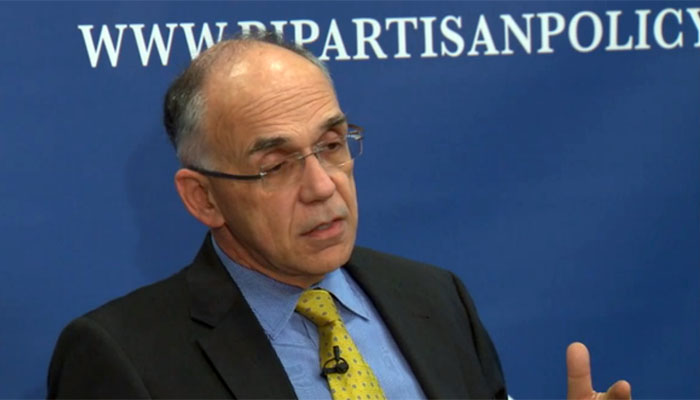American academic Henri Barkey, commenting on allegations of his involvement in a failed coup in Turkey on July 15, 2016, has said the US government doesn’t take the Turkish justice system seriously about its narrative on the coup attempt due to a lack of evidence, the Kronos news website reported on Sunday.
An interview Barkey, the Cohen Professor of International Relations at Lehigh University who previously worked at the US State Department, gave to Ali Yurtsever, a math professor and former president of American Islamic College in Chicago, was broadcast on Yurtsever’s YouTube channel on Saturday.
Barkey, who was on İstanbul’s Büyükada island on the day of the coup for an international meeting as the then-director of the Middle East Program at the Woodrow Wilson Center, has been accused by the Turkish government and the pro-government media of being a CIA agent and among the organizers of the coup attempt.
Businessman and philanthropist Osman Kavala is accused of collaborating with Barkey, and prosecutors claim that the two had dinner at a restaurant in İstanbul on July 18, 2016, three days after the attempted coup.
Kavala, who has been behind bars since October 18, 2017 despite a 2019 European Court of Human Rights ruling that found his detention was in pursuance of an “ulterior motive,” that of silencing him as a human rights defender, was sentenced to aggravated life in April on charges of instigating the anti-government Gezi Park protests of 2013.
Barkey commented on the indictment drafted against him after the 2016 coup attempt during the interview, saying that it made him realize how “rotten” the judicial system in Turkey was.
He reiterated that he was at the İstanbul restaurant on the date in question to have dinner with someone else and only had a “chance encounter” with Kavala and that the two chatted for a few minutes.
The academic added that Turkish President Recep Tayyip Erdoğan, who attributes all evils in his country to foreign powers, chose him as a “victim” because he wanted to blame the abortive putsch on the US but that the indictment they want to condemn him with was “ridiculous and empty.”
“America doesn’t take the Turkish justice system seriously. The documents they [Turkish authorities] sent as evidence of the coup don’t have the ‘quality of evidence’,” Barkey said.
Barkey also said a similar incident took place with an indictment against Islamic cleric Fethullah Gülen, accused by Ankara of masterminding the 2016 coup attempt.
Turkey has sent multiple extradition requests to the US government while pursuing a worldwide crackdown on followers of Gülen in the aftermath of the failed coup. US officials have expressed on several occasions that although Turkey presented them with a large quantity of information about Gülen, the files didn’t include sufficiently clear evidence of his involvement in the abortive putsch.
Gülen, who has been living in the United States since 1999, strongly denies any involvement in the failed coup and asked for an international investigation into the coup attempt in his statement to the media following the failed putsch.
The attempted coup, which killed 251 people and injured more than a thousand others, was a false flag, according to many, aimed at entrenching the authoritarian rule of Erdoğan by rooting out dissidents and eliminating powerful actors such as the military in his desire for absolute power.
On the night of the abortive putsch, President Erdoğan immediately blamed the Gülen movement for the attempt. He has targeted followers of the movement, a faith-based group inspired by Gülen, since the Dec. 17-25, 2013 corruption investigations involving then-prime minister Erdoğan, his family members and his inner circle.
Erdoğan, who dismissed the investigation as a Gülenist coup and a conspiracy against his government, labeled the movement a terrorist organization and began targeting its members. He jailed thousands, including many prosecutors, judges and police officers involved in the investigation as well as journalists who reported on it.
After the coup attempt, Erdoğan stepped up the crackdown on the movement. Gülen and the movement strongly deny involvement in the failed coup or in any terrorist activities.



